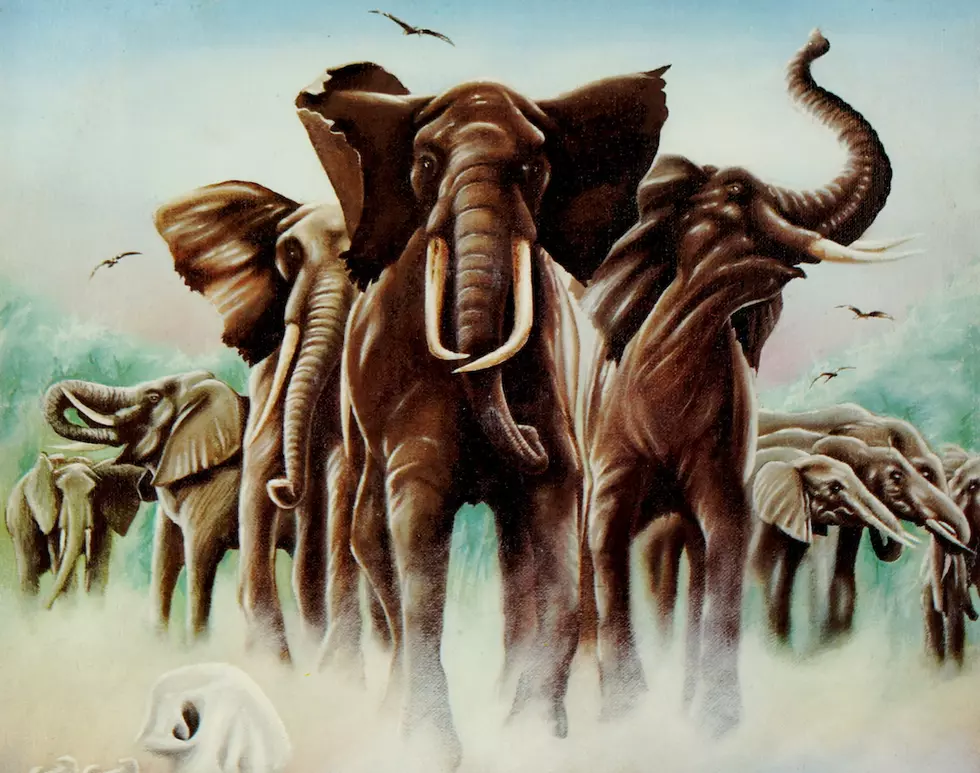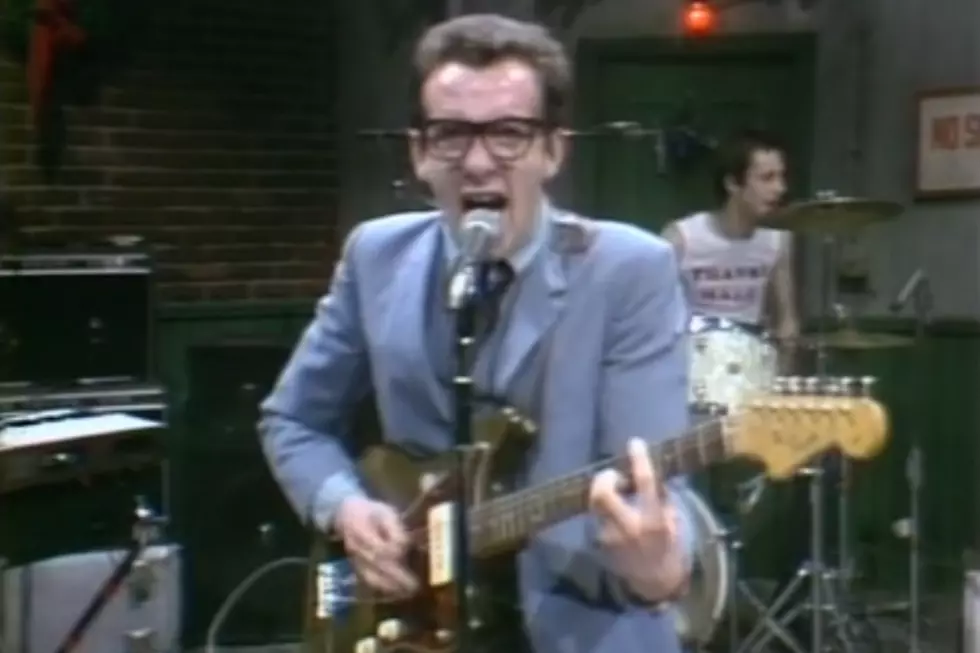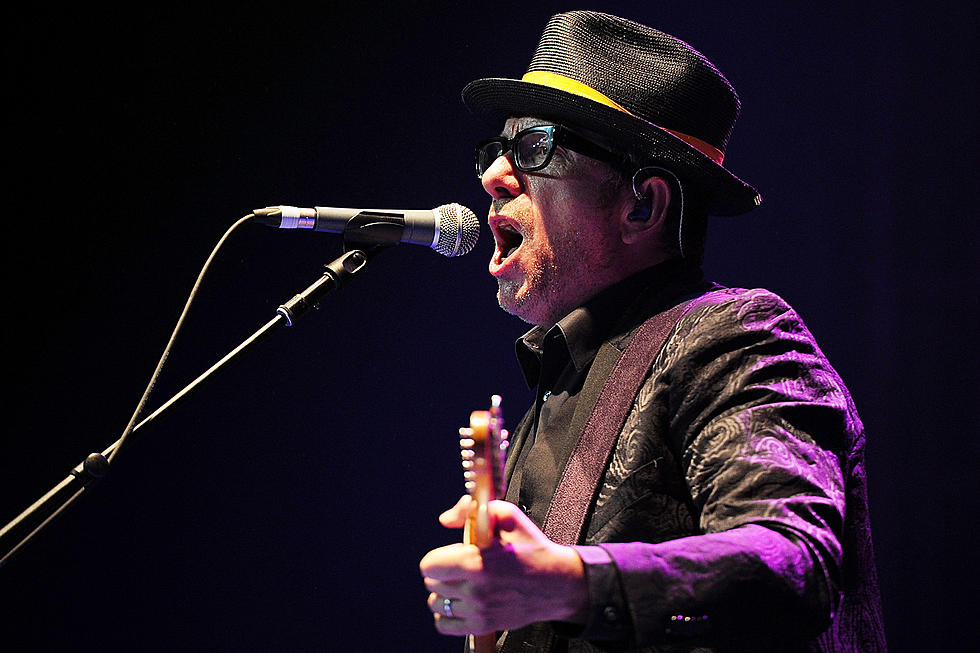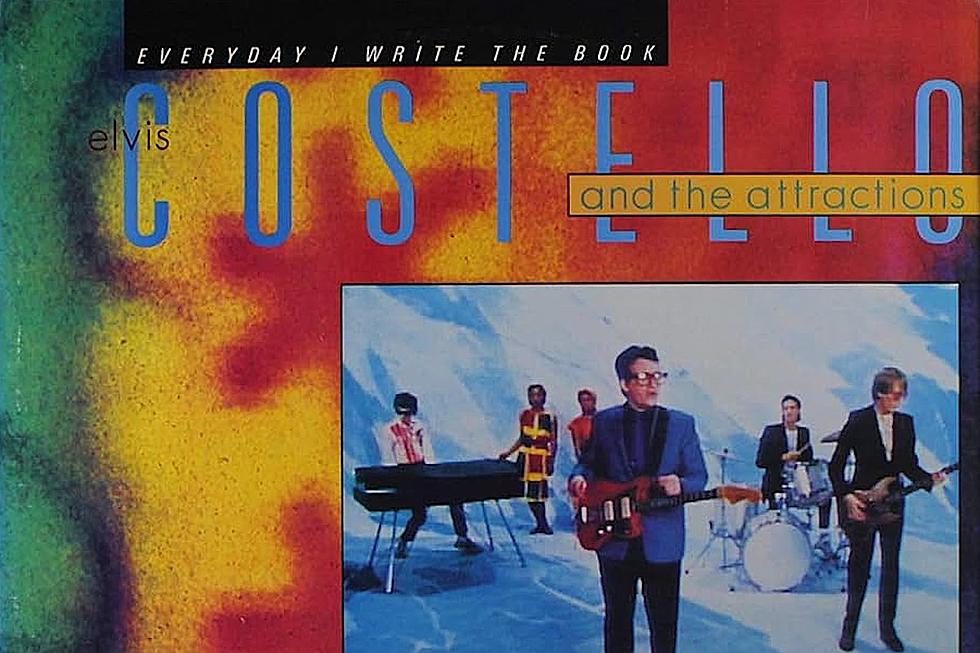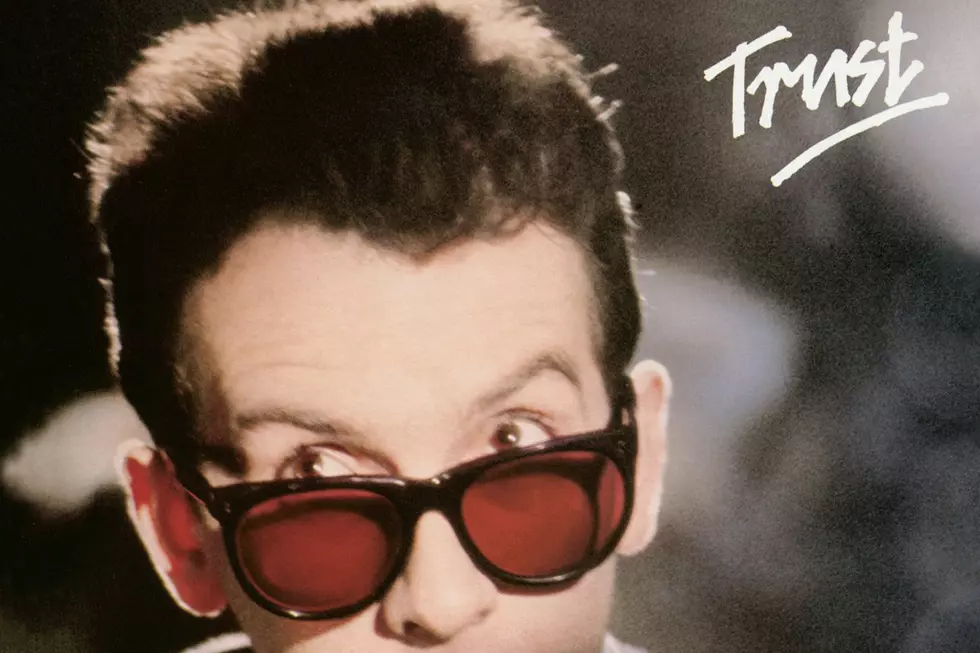
40 Years Ago: Elvis Costello Gives Listeners His ‘Trust’
Elvis Costello’s discography is heavy with acknowledged classics (This Year’s Model, Get Happy!! and Imperial Bedroom among them) along with the occasional acknowledged dud (Goodbye Cruel World, Mighty Like a Rose). His 1981 album, Trust, released on Jan. 23 of that year, falls somewhere in the middle
A varied, occasionally intricate Attractions record released amidst his critical high-water marks, it has both its detractors and staunch supporters. Indeed, at various points in the years since its release, Costello himself has straddled both sides of the critical fence.
Part of this might have to do with the circumstances of its recording, and the condition of the man and his band before, during and after rolling tape. According to Costello, Trust was “easily the most drug-influenced record of my career.”
“It was completed close to a self-induced nervous collapse,” he described in the liner notes to the record's 2003 reissue, “on a diet of rough ‘scrumpy’ cider, gin and tonic, various powders [...] and, in the final hours, Seconal and Johnnie Walker Black Label. The barely coherent ramblings of my addled brain were gradually beaten into some shape by the relentless re-working of melodies and lyrical fragments, many of which predated my professional career.”
Costello, the Attractions and producer Nick Lowe had for unclear reasons eschewed the London studio (Eden Studios) where they had previously recorded, preferring to set up shop at DJM Studios, on the outskirts of the city. All involved agreed the acoustic setup of the new digs did not properly capture the sound of Costello’s new material, and as frustrations mounted, they found sufficient distractions nearby.
“Most days would begin with disenchantment at hearing the previous day’s efforts,” Costello recalled in 2003, “and a plan to repair to a pub at the end of the wonderfully named Lamb's Conduit Passage would soon be proposed. Fortified by several pints of the cider that had fueled our rehearsals, we then purchased a couple of flagons of the same and the cycle of delusion and disappointment that would continue until the small hours.”
Eventually, the band made their way back to Eden to work. The songs they assembled and completed were informed by politics (“Clubland,” “Big Sister’s Clothes,” “Pretty Words”), ennui (“Watch Your Step,” “Strict Time”) and the slow dissolution of personal relationships, most notably Costello’s first marriage (“Lovers Walk,” “Different Finger,” “You’ll Never Be a Man”). The latter tracks were spiked with “adult guilt and romantic disillusionment,” he noted in 2003. “At this remove it seems unnatural that I should have been so unremittingly cynical, but as sense and nonsense collided in the aftermath of our two-and-a-half years of pop success and disgrace, this was a pretty accurate, if blurred, picture.”
One of the earliest-written songs on Trust is “New Lace Sleeves,” a track Costello called “one of the greatest Attractions performances” in a 2002 interview with Rolling Stone. Illicit lovers sleeping together on the sly has rarely been expressed so cynically, not to mention so humorously, as Costello does in the first verse: “Bad lovers face to face in the morning / Shy apologies and polite regrets […] Good manners and bad breath will get you nowhere.”
“That the song itself is mostly concerned with the tension between passion and the emotionally suppressing influence of 'being civilized' is an irony that we can all enjoy with twenty years or more of hindsight,” Costello noted in the 2003 liner notes.
Another highlight on the album is “From a Whisper to a Scream,” which featured guest spots from Graham Parker & the Rumour guitarist Martin Belmont and Squeeze singer Glenn Tilbrook. Costello had just agreed to co-produce the next Squeeze record (1981’s East Side Story) and Tilbrook had stopped by the studio to hang out – in the nick of time, as it turned out.
“Glenn had come to visit the studio during the inevitable crisis in which my voice had vanished due to so many nights spent carousing more than singing,” Costello recalled in 2003. With Costello’s voice blown out, someone needed to provide a guide vocal for the song the band was working on. He recalled Tilbrook “offered to deputize on vocals, so we could cut the track for ‘From A Whisper To A Scream,’ and the effect was so impressive that we decided to cut the song as a duet when I had recovered.”
When most listeners think of Trust, though, they think of “Clubland,” the only single from the record that made even a minor impact on the charts (and even then only in the U.K., where it debuted and peaked at No. 60). And they think of “Clubland” because Costello has played it so often in the years since its release and included it as part of a number of compilations.
Years after recording the song, Costello recognized an inadvertent influence on its instrumental arrangement.
“Oddest of all, it now occurs to me the circular arpeggios in ‘Clubland’ may have secretly been a disrespectful gloss of the Police's guitar style,” he noted in 2003, “though obviously with a darker lyrical content that their songs always seemed to lack. Although my arrogance about and detachment from the pop mainstream was almost complete, we approached this song as if it were to be the next in our only recently broken run of hit singles.”
Costello was dissatisfied with how “Clubland” sounded on record, a circumstance he recognizes now as a result of a key absence in the studio.
“We continued to record for several days without Nick Lowe while he was down with the flu,” Costello recalled. “And the record of ‘Clubland’ probably never did recover from his absence. Although the arrangement was strong, I now see why Nick had some reservations about our master take upon his return to the studio. At the time I was adamant that this was the version to be mixed, although I have heard the same arrangement played to very much better effect on many occasions since.”
Trust was met mostly with indifference at the time of its release; among its harshest critics was Costello himself. “I feel it's under-realized,” he told The Face in 1983. “There were some very good songs on it and some very bad songs, but overall we didn't follow it through to anything definite enough.”
The album has since been remembered in more appreciative terms by critics like Rolling Stone’s Rob Sheffield, who called Trust “his funniest, his wisest, and his most rocking” album. Costello also seems to have revised his assessment of the record, though, in true Costello fashion, he doesn’t just come out and say so.
“Almost by accident, the album arrived at a sound and tone that was very true to my feelings at the time,” he noted in 2003. “The world it described was the opposite of the album title in much the same way that Get Happy!! had been less than cheerful. It suggested a tarnished and disappointed soul looking beyond the certainties of brash, arrogant youth and early success and on into a life (and possibly a career) in music."
“It also,” he concludes, “contains several songs that I still perform to this day.”
If longevity is one of the marks of artistic success, with that statement alone, the songs on Trust should be lauded for their significance. Decades after its release, the album might be ripe for reappraisal.
More From Ultimate Classic Rock




